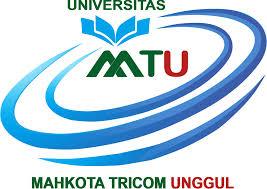The Influence of Entrepreneurship Knowledge and Creativity on the Interest in Entrepreneurship of Vocational Students in Central Lombok District
DOI:
https://doi.org/10.55927/ajns.v2i3.6051Keywords:
Entrepreneur Knowledge, Creativity, Entrepreneur InterestAbstract
The objective of the research is to find out whether there’s impact from entrepreneurship, to solve students’ problems to students’ interest in entrepreneur. The population consists of 270 students of business and management SMK with 100 students as samples. The independent variable is enterpreneur knowledge, ability to solve the problems and the dependent variable is students’ interest in entrepreneur. The data are collected using a questionnaire, and the analysis uses double regression analysis. The results are 1) Simultaneously the impact of entrepreneur exists to solve the problem of students’ interest in entrepreneur, 2). Partially, there’s no impact of entrepreneur knowledge in entrepreneur’s impact of students 3) there’s partial impact to solve entrepreneur problem to the interest of entrepreneur in students. It is suggested to (1) the entrepreneur interest of the students, teachers should give the material based on reality, (2) educational institutions which curriculum oriented
Downloads
References
Dharma, S., Sugiyono, Mulyatiningsih, Sutopo, Irwanto, Palunsu, J. E., Triatmojo Prasetyo, & Siswanto, R. (2013). Tantangan Guru SMK Abad 21 (D. Handoko, Ed.). Direktorat Pembinaan dan Tenaga Kependidikan Menengah, Direktorat Jenderal Pendidikan Menengah, Kementerian Pendidikan dan Kebudayaan.
Fuller, A. (2015). Vocational Education. In International Encyclopedia of the Social & Behavioral Sciences (pp. 232–238). Elsevier. https://doi.org/10.1016/B978-0-08-097086-8.92091-9
Georgiou, H., Turney, A., Matruglio, E., Jones, P., Gardiner, P., & Edwards-Groves, C. (2022). Creativity in Higher Education: A Qualitative Analysis of Experts’ Views in Three Disciplines. Education Sciences, 12(3), 154. https://doi.org/10.3390/educsci12030154
Hasan, M., Santoso, I. R., Syahfitri, D. A., & Amalia. (2021). Literasi Kewirausahaan dan Literasi Bisnis Digital Pada Generasi Milenial Pelaku Usaha: Perspektif Kirzerian Entrepreneur. Journal of Business Management Education, 6(1), 28–39.
Henriksen, D., Creely, E., Henderson, M., & Mishra, P. (2021). Creativity and technology in teaching and learning: a literature review of the uneasy space of implementation . Educational Technology Research and Development, 69(4), 2091–2108. https://doi.org/10.1007/s11423-020-09912-z
Hisrich, R., & Peters, M. D. S. (2008). Entrepreneurship (internatio). McGraw-Hill.
Howard, P. (2018). Twenty-First Century Learning as a Radical Re-Thinking of Education in the Service of Life. Education Sciences, 8(4), 189. https://doi.org/10.3390/educsci8040189
Hurst, B., Wallace, R., & Nixon, S. B. (2013). The Impact of Social Interaction on Student Learning. 52(4).
Hutasuhut, S., & Aditia, R. (2022). Overview of Student Entrepreneurship in Indonesia. www.merdeka.com,
Jinying, W., & Nina Pelagie, P. Z. (2014). Determinants of Entrepreneurial Intention among African Students in China. International Journal of Higher Education, 3(4). https://doi.org/10.5430/ijhe.v3n4p106
Saepul Ardiansyah, R., Yohana, C., & Fadillah Fidhyallah, N. (2021). Faktor-Faktor yang Mempengaruhi Minat Berwirausaha Siswa SMK Negeri di Jakarta (Vol. 2, Issue 2).
Sahade, & Ngampo, M. Y. A. (2016). PENGETAHUAN WIRAUSAHA DAN MINAT BERWIRAUSAHA PADA SISWA SMK.
Seidman, E., Kim, S., Raza, M., Ishihara, M., & Halpin, P. F. (2018). Assessment of pedagogical practices and processes in low and middle income countries: Findings from secondary school classrooms in Uganda. Teaching and Teacher Education, 71, 283–296. https://doi.org/10.1016/j.tate.2017.12.017
Sundari, C. (2019). REVOLUSI INDUSTRI 4.0 MERUPAKAN PELUANG DAN TANTANGAN BISNIS BAGI GENERASI MILENIAL DI INDONESIA. In R. P. Nurlaili & R. Sugiharti (Eds.), Fintech dan E-Commerce untuk Mendorong Pertumbuhan UMKM dan Industri Kreatif, (pp. 555–563).
Tran, T. B. L., Ho, T. N., Mackenzie, S. V., & Le, L. K. (2017). Developing assessment criteria of a lesson for creativity to promote teaching for creativity. Thinking Skills and Creativity, 25, 10–26. https://doi.org/10.1016/j.tsc.2017.05.006
van Laar, E., van Deursen, A. J. A. M., van Dijk, J. A. G. M., & de Haan, J. (2017). The relation between 21st-century skills and digital skills: A systematic literature review. Computers in Human Behavior, 72, 577–588. https://doi.org/10.1016/j.chb.2017.03.010
Wheten & Cameron. 2004.Developing Management Skill For Europe. Printice Hall, New Jersey.
Downloads
Published
How to Cite
Issue
Section
License
Copyright (c) 2023 Asrorul Azizi, A. Wahab Jufri, Sarjan, Yunita Arian Sani, Joni Rokhmat, AA Sukarso

This work is licensed under a Creative Commons Attribution 4.0 International License.

















